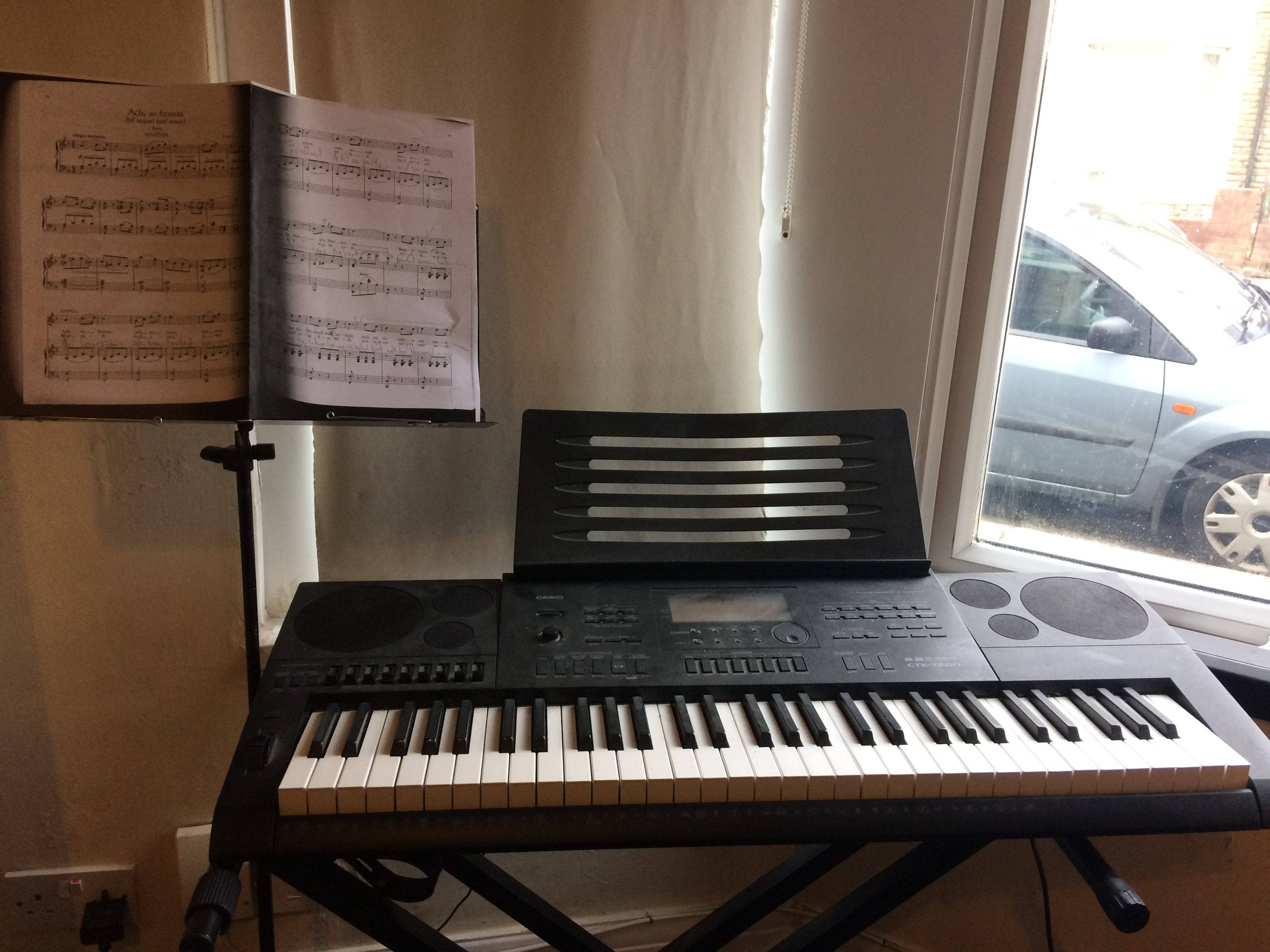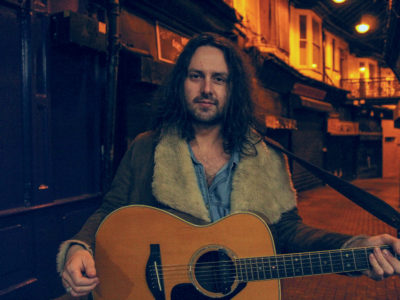The Cost of Musical Talent
If you are not fortunate to receive musical tuition as part of your school curriculum, the costs of talent can add up.
Lewis says the Royal Welsh College of Music and Drama advises its students the minimum amount of contact time with your tutor should be one hour per week.
Individual music lessons can cost up to £40 per hour with specialist tuition more than double that.
On top of which, many higher education institutions would require up to Grade 6 in a second instrument before a student would be considered.
At the end of an academic year, your costs* might look something like this:
Tuition fees for a total of 39 weeks: £1560.00
ABRSM Grade 5 Theory Exam: £38.00
ABRSM Grade 8 Exam: £95.00
ABRSM Grade 6 Exam: £75.00
Total: £1768.00
*The costs calculated here are based on tuition at £40 per hour for one hour a week, excluding 13 weeks of academic holidays. Exam costs have been taken from ABRSM’s website.
Deborah Wilcox, whose daughter studied Voice as part of the JMAS programme at the RWCMD, says, “The three years of her education there cost as much as my postgraduate degree is costing me now and that was ten years ago. Without the JMAS bursary, there was no way as a family we could have afforded it.”
She also warns parents of unexpected costs. The college was a 30-mile round trip from home which she made twice a day, dropping off and picking up her daughter in a car. She also warns that, as her daughter’s instrument was voice, there were certain foods or drinks she needed to stay away from and she could not be exposed to extremes of temperature.
Deborah says, “She needed to avoid doing a lot of things that a teenager wants to do – singing loudly or going out in the cold and the wet with her friends. There are commitments which need to be made by the student and the family and these are not inconsiderable.”
With the budget for music in schools being sliced thinly and private tuition on the rise, what is the cost of musical talent?

Inside the foyer of the Royal Welsh College of Music and Drama where young students access classical tuition on Saturdays
We have all been there, shaking a tambourine in the corner while Mozart 2.0 tickles the ivories and some fool is screeching away at Frere Jacques on the recorder.
Music lessons in school might seem tailor-made for talented students and if that’s not you, you might as well shake that tambourine and stare at your watch until the bell rings.
Does that mean music is a waste of time, taking up space on a timetable that could be allocated to Core subjects? Or can we learn transferable skills from music?
Primary school teacher, Jenna Brooks, says, “[Music] develops maths skills – counting, rhythm, repetition and pattern. It also allows [the children] to develop their confidence. Playing an instrument or singing within a group lets them have a creative space. They can try something new without worrying about doing something wrong.”
Music was a cornerstone of education
Music faces a severe lack of funding across Wales, despite twenty of the twenty-two councils increasing their schools’ budget per student.
It used to be every child was encouraged to play an instrument. By the time I left primary school, I sang and played both the descant recorder and the violin. Six weeks later, I was learning to play the trumpet.
Lewis Ham, a post-graduate vocal student, had much the same experience. He says, “I started learning the French horn in primary school. It’s a bit of an odd choice, but we had instrumental teachers come in – one for brass, one for wind – and the teacher started to play the theme from Titanic on it and I thought, I want to play that.”
“The pressure to maintain a high standard in the core subjects means that music gets pushed aside”
The tragedy is that schools can no longer afford to bring in peripatetic tutors to expose students to instruments they have never seen before, instruments they would not seek out independently.
Music is a low priority
Jenna says, “Music is a low priority in primary school classrooms these days. Schools are unable to afford to buy equipment. Hiring in companies to teach music and supply instruments for the lessons is also quite pricey.
This, along with the pressure to maintain a high standard in the core subjects, means that music gets pushed aside.”
Lewis agrees, saying, “What you see in a time of cuts is people playing guitar or drums and trying to form a band – which is fine, but are schools doing enough to encourage people to play other instruments?”
Some instruments, voice perhaps most of all, you can discover independently of your formal schooling, but rarely will you casually stumble across a bassoon.
There is some good news. A lack of funding for instruments and tuition was acknowledged by the Welsh Assembly Government. In February of 2017 the Minister for Education, Kirsty Williams, and Cabinet Secretary for Economy and Infrastructure, Ken Skates, endorsed a National Endowment for Music alongside the Arts Council of Wales.
The fund is expected to begin supporting young musicians from 2020.
Is music accessible to anyone with talent?
If music is not an option available at school, a student can study independently, following programmes like the Junior Music Access Courseat the Royal Welsh College of Music and Drama.
JMAS enables students to not only hone their craft in individual lessons, but also play like a professional in a junior orchestra or sing in a chamber choir.
It is an enriching experience for a musician, but it comes at a price. £831 per ten-week term to be precise – a total of £3324 in an academic year.
This is not to say that tuition is not available to those from disadvantaged backgrounds. Bursaries are available to students who qualify for assistance. Patricia Kier, head of JMAS, says, “When students are offered a place on the advanced course, in most cases, they’re automatically sent a bursary application. It is worked out on a means test basis.”
If you want a career in classical music, Lewis says, then you cannot rely on raw talent alone. Those who have studied music will be competing for jobs and you cannot hope to match them unless you have been trained in four languages, can sight-read music, and play to a Grade 8 level (the highest grade awarded by music education body, ABRSM). In order to sit your Grade 8 practical exam, you also need to have obtained at least Grade 5 in music theory – understanding Italian musical terms, reading and writing music on a stave, and transposing between clefs.

Lewis rehearses both voice and piano every day to maintain his standard of sound
Students would not learn any of this at Key Stage 3. A student needs to clap along to a beat, they need to sing or play scales, and most importantly, they need to have fun with it and discover music for themselves.
“Are schools doing enough to encourage people to play other instruments?”
In cutting Music tuition in our state schools, we are depriving students from reaching their potential. Ultimately, we are depriving ourselves. We might eventually be left with only one voice in music. A clipped voice, with rounded vowels and bearing an uncanny resemblance to Received Pronunciation.
Our school students’ access may be limited to one hour a week, shaking a tambourine in the corner and glancing at their watch, but secretly, like covert agents, transferable skills are sneaking up on them.
Do you want better mathematicians? Music. Do you want patient and enthusiastic team players? Music. Do you want confident speakers, able to deliver a presentation to the board? Music.
Do you want diversity in the arts? Then to paraphrase Mr Blair, music education, music education, music education.
The Cost of Musical Talent
If you are not fortunate to receive musical tuition as part of your school curriculum, the costs of talent can add up.
Lewis says the Royal Welsh College of Music and Drama advises its students the minimum amount of contact time with your tutor should be one hour per week.
Individual music lessons can cost up to £40 per hour with specialist tuition more than double that.
On top of which, many higher education institutions would require up to Grade 6 in a second instrument before a student would be considered.
At the end of an academic year, your costs* might look something like this:
Tuition fees for a total of 39 weeks: £1560.00
ABRSM Grade 5 Theory Exam: £38.00
ABRSM Grade 8 Exam: £95.00
ABRSM Grade 6 Exam: £75.00
Total: £1768.00
*The costs calculated here are based on tuition at £40 per hour for one hour a week, excluding 13 weeks of academic holidays. Exam costs have been taken from ABRSM’s website.
Deborah Wilcox, whose daughter studied Voice as part of the JMAS programme at the RWCMD, says, “The three years of her education there cost as much as my postgraduate degree is costing me now and that was ten years ago. Without the JMAS bursary, there was no way as a family we could have afforded it.”
She also warns parents of unexpected costs. The college was a 30-mile round trip from home which she made twice a day, dropping off and picking up her daughter in a car. She also warns that, as her daughter’s instrument was voice, there were certain foods or drinks she needed to stay away from and she could not be exposed to extremes of temperature.
Deborah says, “She needed to avoid doing a lot of things that a teenager wants to do – singing loudly or going out in the cold and the wet with her friends. There are commitments which need to be made by the student and the family and these are not inconsiderable.”





